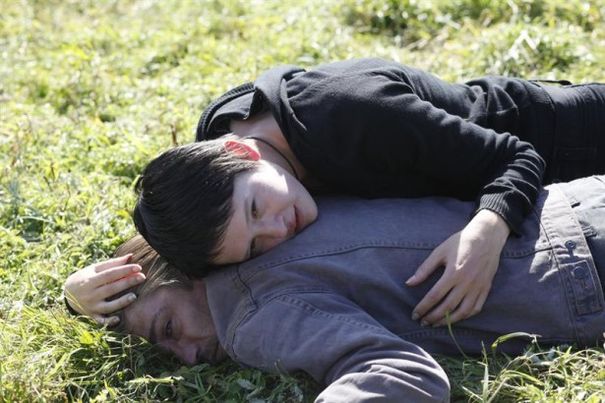The minimalism of hate
Luciana Calcagno reviews Bruno Dumont's HORS SATAN, shown at the Buenos Aires Festival Internacional de Cine Independiente.

Bruno Dumont's HORS SATAN.
If Dumont declared that the power of cinema "lies in the return of man to the body" then this is, literally, his most powerful film. A combination of ORDET and HADEWIJCH, HORS SATAN is the forceful proof of a director who, by becoming more and more mystic, has driven his films to become more closed upon themselves, turning into something almost incomprehensible for the audience as well as for the fans (his own and those religious).
In this film there is a return to the countryside, to the Flandres region. There is also a return to a crude violence, through long and silent shots, and to outsider characters. Yet, something of trascendental nature appears in HORS SATAN and is not shown in the same way as in HADEWIJCH, but in a rather evil and mysterious manner, in the shape of a girl with her eyes popping out of her head or of a woman frothing at the mouth.
The character played by David Dewaele (whom we saw in HADEWIJCH) will be in charge of expelling the devil in these women. At the same time, he will evolve into an extremely cruel and careless being, into some sort of prairie psycho.
Like in HADEWIJCH, where we only saw love (even though Dumont’s extremely powerful and violent scenes were not left aside), in HORS SATAN we only see hate and darkness. The only act of love appears at the end, when this outsider, who is now an exorcist, gives his lover her life back, in a memorable and moving Dreyer-like resurrection, maybe the only thing that’s moving in the film.
The extreme minimalism of the mise en scène reveals a mastery that is not surprising in Dumont and which is in tune with the film's inscrutability. The same happens with the scarce gestures of his actors/non actors, and with the perfectly photographed shots. However, the rarefied and harsh atmosphere creates a coldness and a distance which can be repaired neither with an appeal to "sensoriality" nor with one to the yet incomprehensible spirituality. No doubt, this is Dumont's most difficult film, and yet we choose to still be patient with him.
(Translated by Clara Picasso)

